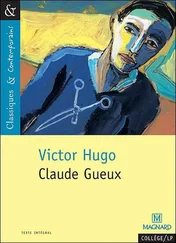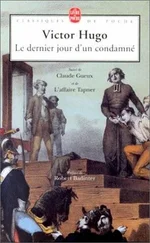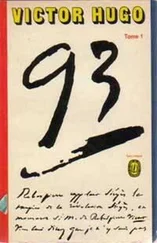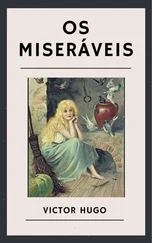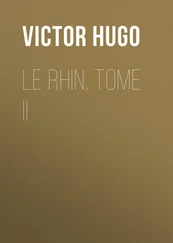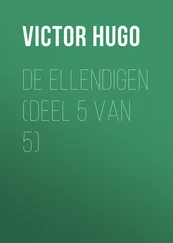Victor Hugo - Ninety-Three
Здесь есть возможность читать онлайн «Victor Hugo - Ninety-Three» — ознакомительный отрывок электронной книги совершенно бесплатно, а после прочтения отрывка купить полную версию. В некоторых случаях можно слушать аудио, скачать через торрент в формате fb2 и присутствует краткое содержание. Жанр: literature_19, foreign_antique, foreign_prose, на английском языке. Описание произведения, (предисловие) а так же отзывы посетителей доступны на портале библиотеки ЛибКат.
- Название:Ninety-Three
- Автор:
- Жанр:
- Год:неизвестен
- ISBN:нет данных
- Рейтинг книги:3 / 5. Голосов: 1
-
Избранное:Добавить в избранное
- Отзывы:
-
Ваша оценка:
- 60
- 1
- 2
- 3
- 4
- 5
Ninety-Three: краткое содержание, описание и аннотация
Предлагаем к чтению аннотацию, описание, краткое содержание или предисловие (зависит от того, что написал сам автор книги «Ninety-Three»). Если вы не нашли необходимую информацию о книге — напишите в комментариях, мы постараемся отыскать её.
Ninety-Three — читать онлайн ознакомительный отрывок
Ниже представлен текст книги, разбитый по страницам. Система сохранения места последней прочитанной страницы, позволяет с удобством читать онлайн бесплатно книгу «Ninety-Three», без необходимости каждый раз заново искать на чём Вы остановились. Поставьте закладку, и сможете в любой момент перейти на страницу, на которой закончили чтение.
Интервал:
Закладка:
They approached Tellmarch, still trembling violently.
The latter had found strength to utter his cry, but he could not speak; deep emotions always produce this effect.
He pointed to the woman lying at his feet.
"Is she still alive?" asked one of the peasants.
Tellmarch nodded.
"And the other woman, – is she living too?" asked the second peasant.
Tellmarch shook his head.
The peasant who had been the first to show himself continued: —
"All the others are dead, are they not? I saw it all. I was in my cellar. How grateful one is to God, in times like these, to have no family! My house was burned. Lord Jesus! everybody was killed. This woman had children, – three little ones! The children cried, 'Mother!' The mother cried, 'Oh, my children!' They killed the mother and carried away the children. I saw all, – oh, my God! my God! Those who murdered them went off well pleased. They carried away the little ones, and killed the mother. But she is not dead, is she? I say, Caimand, do you think you could save her? Don't you want us to help you carry her to your carnichot? "
Tellmarch nodded.
The woods were near the farm. They quickly made a litter with branches and ferns, and placing the woman, still motionless, upon it, they started towards the grove, the two peasants bearing the litter, one at the head, the other at the foot, while Tellmarch supported the woman's arm and constantly felt her pulse.
On the way the two peasants talked; and over the body of the bleeding woman, whose pale face was lighted by the moon, they exchanged their frightened exclamations.
"To kill all!"
"To burn all!"
"Oh, my Lord! Is that the way they are going to do now?"
"It was that tall old man who ordered it."
"Yes; he was the commander."
"I did not see him while the shooting went on. Was he there?"
"No, he was gone. But it was done by his order, all the same."
"Then it was he who did this."
"He said, 'Kill, burn! No quarter!'"
"Is he a marquis?"
"Yes, of course; he is our marquis."
"What is his name?"
"It is Monsieur de Lantenac."
Tellmarch raised his eyes to heaven, murmuring between his teeth, —
"Had I but known!"
PART II
AT PARIS
BOOK I
CIMOURDAIN
I
THE STREETS OF PARIS AT THAT TIME
People lived in public; they ate at tables spread outside the doors; women sat on the church steps, making lint to the accompaniment of the Marseillaise; the park of Monceaux and the Luxembourg were turned into parade-grounds; at every street-corner there was a gun-maker's shop, where muskets were manufactured before the eyes of the passers-by, to their great admiration. "Patience: this is revolution" was on every lip. People smiled heroically. They went to the theatre as in Athens during the Peloponnesian war. At street-corners were seen such playbills as these, advertising: "The Siege of Thionville;" "A Mother saved from the Flames;" "The Club of Sans-Soucis;" "The oldest of the Popes Joan;" "The Military Philosophers;" "The Art of Love-making in the Village." The Germans were at the gates; it was rumored that the King of Prussia had secured boxes for the opera. Everything was terrible, yet no one was frightened. The grewsome law against the suspected, which was the crime of Merlin de Douai, held a vision of the guillotine suspended over every head. A lawyer, Séran by name, learning that he had been denounced, calmly awaited his arrest, arrayed in his dressing-gown and slippers, playing the flute at his window. No one seemed to have any spare time, every one was in a hurry; all the hats bore their cockades, and the women cried, "Are not red caps becoming to us?" All Paris seemed in the act of changing its abode. The curiosity shops were filled with crowns, mitres, gilded sceptres, and fleur-de-lis, spoils from royal dwellings, – the signs of the destruction of monarchy. Copes and surplices might be seen hanging on hooks offered for sale at the old-clothes shops. At the Porcherons and at Ramponneau's men decked out in surplices and stoles bestrode donkeys caparisoned with chasubles, and drank wine from ecclesiastical ciboria. In the Rue Saint-Jacques barefooted street-pavers once stopped the wheelbarrow of a shoe-pedler and clubbing together bought fifteen pairs of shoes to send to the Convention "for our soldiers." Busts of Rousseau, Franklin, Brutus, and even, be it added, of Marat, abounded. In the Rue Cloche-Perce, below one of Marat's busts, in a black wooden frame under glass, hung a formula of prosecution against Malouet, with facts in support of the charges and the following lines inscribed on the margin: —
These details were given to me by the mistress of Sylvain Bailly, a good patriot, and who had a liking for me.
Signed:
MARAT.The inscription on the Palais Royal fountain, "Quantos effundit in usus!" was hidden under two large canvases painted in distemper, one representing Cahier de Gerville denouncing to the National Assembly the rallying-cry of the "Chiffonistes" of Arles; the other, Louis XVI. brought back from Varennes in his royal carriage, and under the carriage a plank fastened by cords bearing on each end a grenadier with levelled bayonet. Very few large shops were open; perambulating carts containing haberdashery and toys, lighted by tallow candles, which, melting, dripped upon the merchandise, were dragged through the streets by women. Ex-nuns adorned with blond wigs kept open shop; this woman, darning stockings in a stall, was a countess; that dressmaker, a marchioness; Madame de Boufflers lived in an attic from which she had a view of her own hotel. Venders ran about offering the news bulletins. People who muffled their chins in their neck-cloths were called "écrouelleux." Street singers swarmed. The crowd hooted Pitou, the royalist song-writer, a brave man, to boot, for he was imprisoned twenty-two times and was brought before the revolutionary tribunal for slapping himself behind when he uttered the word "civism;" seeing that his head was in danger, he exclaimed, "But my head is not the offending member!" which made the judges laugh, and saved his life. This Pitou ridiculed the fashion of Greek and Latin names; his favorite song was about a cobbler and his wife whom he called Cujus and Cujusdam. The Carmagnole was danced in circles; they no longer said "lady" and "gentleman," but "citizen" and "citizeness." They danced in the ruined cloisters, beneath a chandelier made of two sticks fastened crosswise to the vaulted roof, bearing four candles, while the church lamps burned upon the altar, and tombs lay beneath the dancers' feet. They wore "tyrant-blue" waistcoats, and shirt-pins called "liberty's cap," composed of red, white, and blue stones. The Rue de Richelieu was called Rue de la Loi; the Faubourg Saint-Antoine, the Faubourg de Gloire; a statue of Nature stood in the Place de la Bastille. People pointed out to each other well-known personages, – Châtelet, Didier, Nicolas, and Gamier-Delaunay, who mounted guard at the doors of the joiner Duplay; Voullant, who never missed a day of guillotining, and who followed the tumbrils of the condemned, calling it "going to the red mass;" Montflabert, a revolutionary juryman and marquis whom they called Dix-Août. They watched the pupils of the École Militaire file past, called "aspirants to the school of Mars" by the decrees of the Convention, and nicknamed by the people "Robespierre's pages." They read the proclamations of Fréron, denouncing those suspected of the crime of "négotiantisime." Young scapegraces gathered about the doors of the mayoralties crowding the brides and grooms as they came in sight, and shouting, "Municipal marriages," in derision of the civil ceremony. The statues of the saints and kings at the Invalides were crowned with Phrygian caps. They played cards on curbstones at the crossings, and the very cards themselves were totally revolutionized; kings were replaced by genii, queens by the Goddess of Liberty, knaves by Equality, aces by emblems of Law. The public gardens were tilled; they ploughed the Tuileries.
Читать дальшеИнтервал:
Закладка:
Похожие книги на «Ninety-Three»
Представляем Вашему вниманию похожие книги на «Ninety-Three» списком для выбора. Мы отобрали схожую по названию и смыслу литературу в надежде предоставить читателям больше вариантов отыскать новые, интересные, ещё непрочитанные произведения.
Обсуждение, отзывы о книге «Ninety-Three» и просто собственные мнения читателей. Оставьте ваши комментарии, напишите, что Вы думаете о произведении, его смысле или главных героях. Укажите что конкретно понравилось, а что нет, и почему Вы так считаете.

